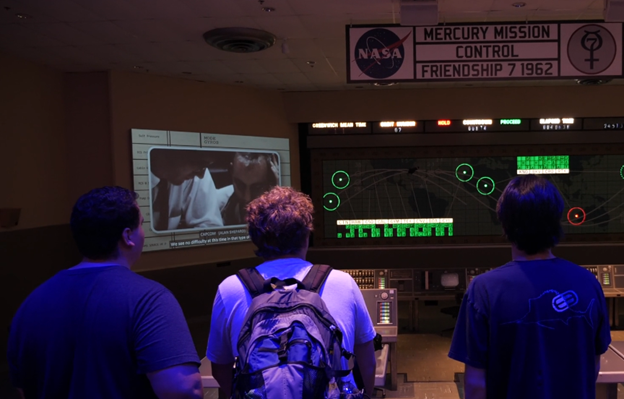

Press Release: October 24, 2024
Colorado Springs, CO – October 24, 2024 – While Blake MacDonald was a student at Pikes
Peak
State College, he, and two of his friends from UCCS, Noah Grebe and Luke Davis, proved
their
elite innovation and earned the opportunity to have their experiment, "Calcium Sulfate
Crystal
Growth in Microgravity," launched to the International Space Station (ISS). After
unforeseen
delays, their experiment will now be launched in mid-November 2024. Their research
focuses
on growing Calcium Sulfate crystals in microgravity, potentially developing high-quality
fertilizers
that could support long-term space missions.
Selected from a competitive pool of ten proposals and 45 students, the PPSC-UCCS team
is one
of only 37 communities worldwide chosen to participate in the prestigious Student
Spaceflight
Experiments Program (SSEP). The team is investigating how microgravity affects the
formation
of these crystals, which have wide-ranging uses from building materials to food additives
and
fertilizers. If successful, the experiment could pave the way for producing this essential
substance in orbit, contributing significantly to the future of space exploration.
The experiment is part of SSEP's Mission 18 payload and will be launched aboard a
SpaceX
Falcon 9 Dragon rocket from NASA's Kennedy Space Center in Florida in mid-November.
Once
aboard the ISS, orbiting 250 miles above Earth and traveling at 4.5 miles per second,
astronauts
will operate the experiment for approximately 2-4 weeks.
"This project could completely reshape how we think about growing food in space,"
said Dr.
McKenna Lovejoy, Director of Engineering at Pikes Peak State College. "By creating
more
effective fertilizers for astronauts, we can make space missions more sustainable,
offering a
viable solution for long-term food production beyond Earth."
In addition to the science experiment, the program will engage K-12 students in a
mission patch
contest, giving younger students in the local community the opportunity to design
a patch for
the flight. Mission 19 is already underway for another experiment cycle. For more
information
about the experiment or to participate in the mission patch contest, contact McKenna
Lovejoy
at mckenna.lovejoy@pikespeak.edu.
About SSEP
The Student Space Flight Experiments Program [or just “SSEP”] is a program of the
National
Center for Earth and Space Science Education (NCESSE) in the U.S. and the Arthur C.
Clarke
Institute for Space Education Internationally. It is enabled through a strategic partnership
with
Nanoracks, LLC, which is working with NASA under a Space Act Agreement as part of
the
utilization of the International Space Station as a National Laboratory.
About Pikes Peak State College (PPSC):
Established in 1968 and accredited by the Higher Learning Commission, Pikes Peak offers
associate degrees, certificates in career and technical fields and a growing number
of bachelors’
degrees. With four campuses, various off-campus locations, two military education
centers, and
hundreds of online classes, PPSC provides access to a quality, affordable and flexible
education
to more than 17,000 students annually with both credit and non-credit classes.